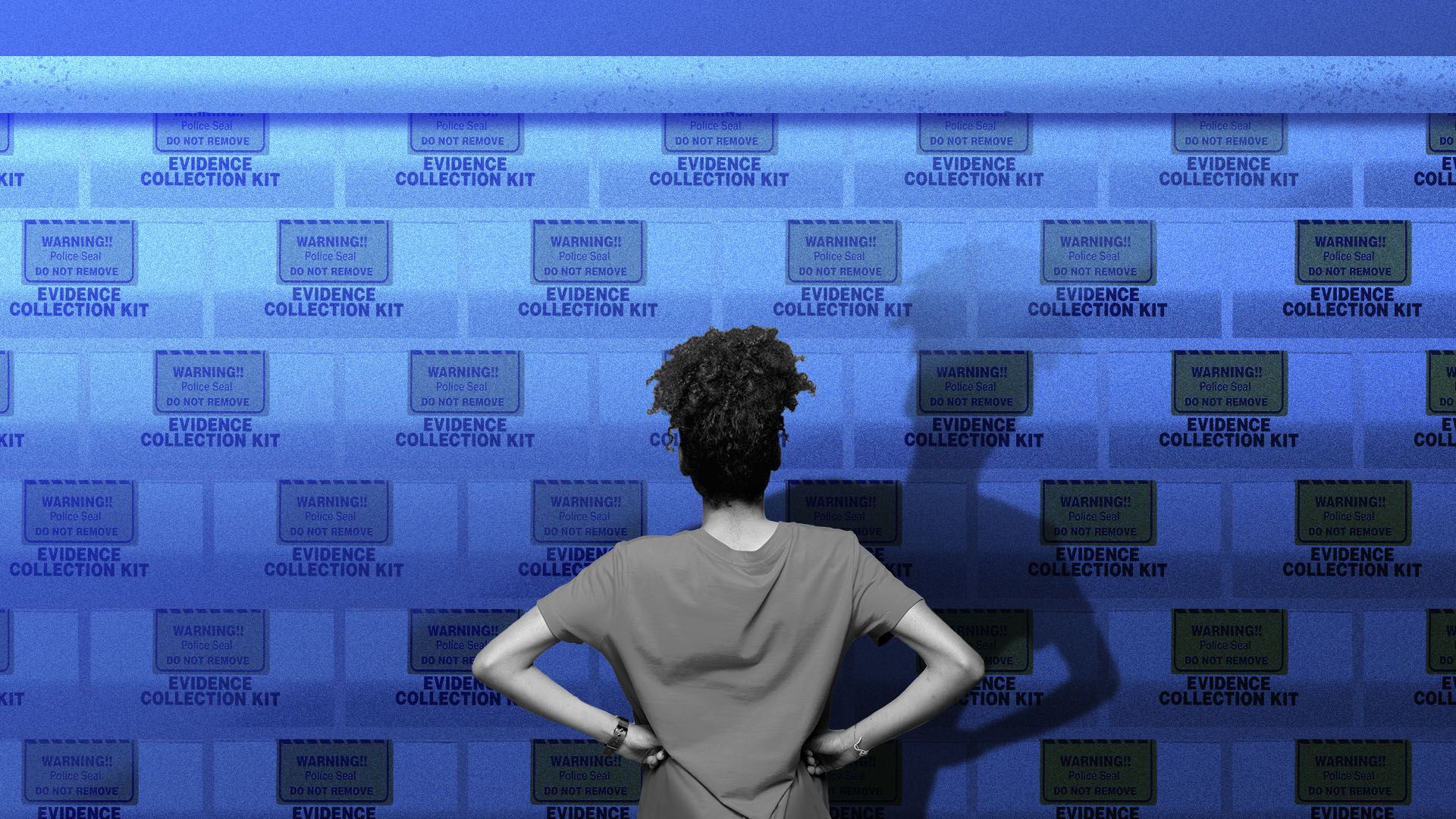Untested rape kits leave thousands of serial rapists at large
Add Axios as your preferred source to
see more of our stories on Google.

Illustration: Sarah Grillo/Axios
A recent push by lawmakers and activists to test sexual assault kits, or rape kits, for DNA matches led to the introduction of 105 state bills and the enactment of 28 new laws in 2019 to provide funding and resources to test the kits, according to the nonprofit End the Backlog.
Why it matters: The rape kits are often the only physical evidence in a court case, and processing them has led to the arrest of hundreds of sexual assault offenders across the country.
- Many are repeat offenders who possibly could have been arrested sooner had the kits been tested earlier.
- Many states don’t keep detailed inventories of their rape kits, making it difficult to understand exactly how many remain untested, and there is no comprehensive national count, according to End the Backlog. They estimate the backlog to be in the hundreds of thousands.
- The laws and proposed bills cover 35 states and the District of Columbia.
A rape kit is the physical evidence from a sexual assault, gathered during a forensic medical exam that can last up to six hours. The procedure is invasive and can further add to a person’s trauma, Time reports.
What can cause backlogs:
- Funding: The responsibility for testing the kits lies with local investigators and officials who may lack the resources and funding to test the kits in a timely manner.
- Training: Stephanie Hoelscher, a public policy consultant, told Bustle she doesn’t believe prosecutors or law enforcement act out of malice when rape kits are left on shelves. Instead, Hoelscher believes they may lack training or an understanding of how trauma can affect a person’s ability to recall details from an incident.
- Overwhelmed labs: State labs can also be inundated trying to sort through evidence from hundreds if not thousands of cases. In some instances, labs ask the police to prioritize the evidence they send in, which can cause rape kits to be left behind for days or even years.
The state of play: New state and federal laws have allocated millions of dollars for testing rape kits, training law enforcement officials and rape kit tracking systems.
- President Trump signed the Debbie Smith Act in Dec. 2019, which sets aside $151 million to test backlogged kits. Congress provided $41 million when it last authorized the Act in 2014.
What we’re seeing: In North Carolina, an estimated 15,000 rape kits are backlogged, possibly the largest number in the country. The state established a large scale rape kit inventory in 2018.
- The state attorney general, Josh Stein, told Axios that North Carolina has made major progress since 2017 by implementing a rape kit tracking system, requiring law enforcement to test kits within 45 days of submission and increasing funding for testing.
Go deeper: The lasting health effects of sexual assault
If you or someone you know may be struggling with sexual assault, contact the National Sexual Assault Hotline at 1-800-656-4673.
